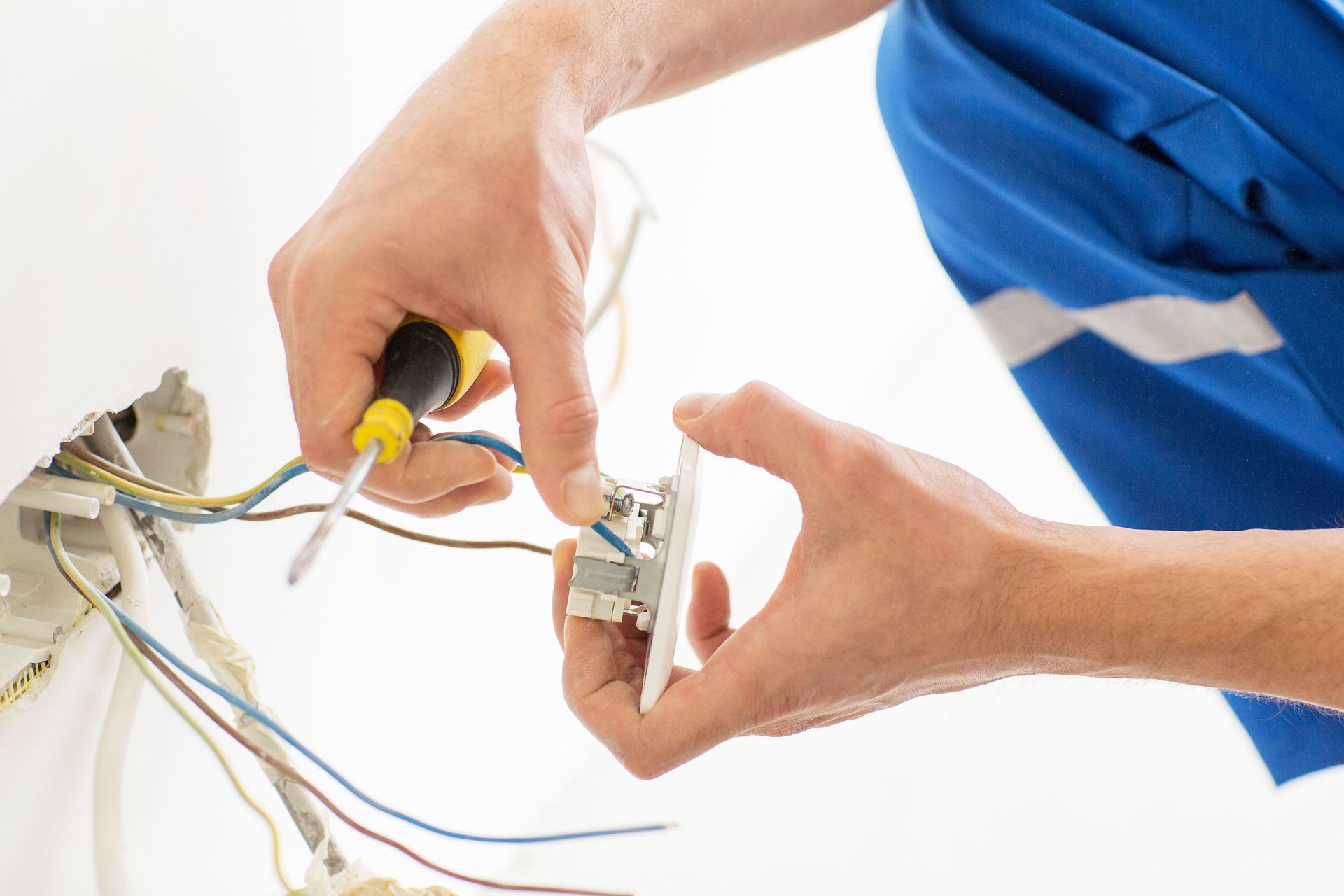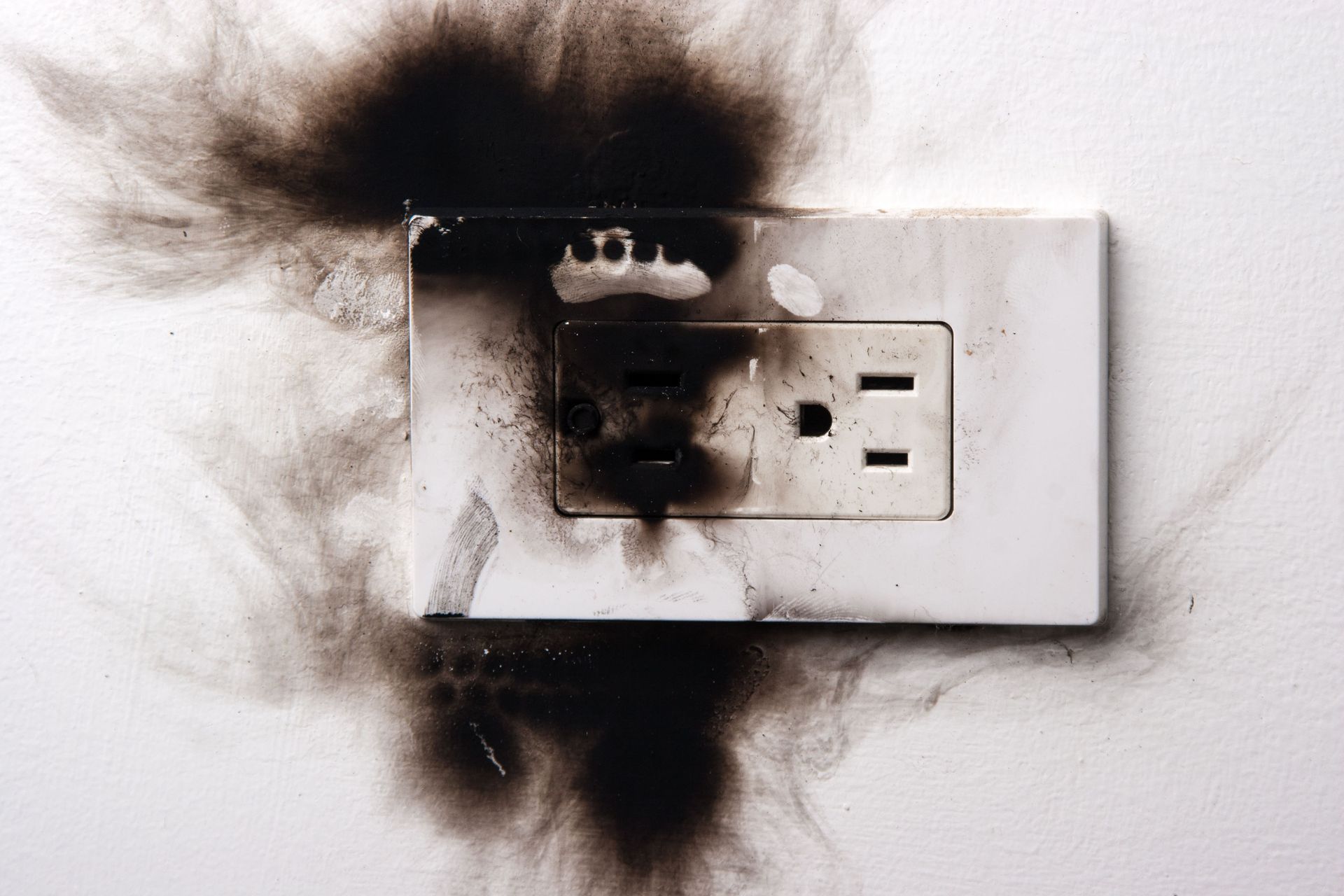5 Risks of Delaying Electrical Rewiring in Your Home
Electricity is one of those modern conveniences most people rarely think about — until something goes wrong. Your lights flicker, an outlet buzzes, or a breaker trips, and suddenly the safety and efficiency of your home’s electrical system come into question. While visible issues often get quick attention, hidden wiring problems tend to be ignored for years.
Unfortunately, outdated or deteriorating wiring doesn’t fix itself; it worsens over time and can lead to serious risks, both financial and physical.
Many older homes still rely on wiring that wasn’t designed for the electrical demands of today’s world. As we continue to add more appliances, electronics, and smart devices, those older systems become increasingly strained. Rewiring may not seem urgent, but delaying it can lead to costly consequences.
Below are five major risks of postponing electrical rewiring — and why addressing the issue early can save you money, improve safety, and provide peace of mind for years to come.
1. Increase Fire Hazards
Electrical fires are among the most devastating and preventable types of house fires. Faulty wiring — whether frayed, corroded, or improperly installed — is one of the top culprits. When insulation wears away or wires loosen, electrical current can escape and generate excessive heat. In some cases, a single spark can ignite nearby insulation or wood framing.
Older electrical systems pose particular danger because they were never built to handle the higher voltage and current demands of modern appliances. Homes with aluminum wiring, for instance, are at elevated risk because aluminum expands and contracts more than copper, loosening connections over time. Outdated cloth insulation also becomes brittle, leaving conductors exposed.
If you’ve noticed flickering lights, outlets that feel hot to the touch, or a burning odor near plugs or switches, these are early warning signs that your wiring could be compromised. Don’t ignore them. Hiring a residential electrician to inspect and rewire your home ensures that all connections are secure, circuits are properly grounded, and materials meet modern safety standards.
2. Compromise Electrical Efficiency
Even if your wiring isn’t causing immediate danger, it could still be wasting energy and driving up your utility bills. As wires age, corrosion and loose connections increase resistance within the system. This forces your electrical network to work harder to deliver power to outlets and appliances, creating inefficiencies that translate into wasted electricity and higher costs.
Older systems were also designed for a much lower power load than most households use today. Decades ago, homes didn’t have dozens of electronics, large entertainment systems, or high-powered kitchen appliances all running simultaneously. The result is that older circuits may frequently overload, causing breakers to trip or lights to dim when too many devices are in use.
Upgrading to modern wiring ensures that energy flows efficiently and evenly throughout your home. You’ll likely notice improved performance — fewer voltage drops, steadier lighting, and smoother operation of major appliances. A certified residential electrician can install new circuits designed to support your household’s actual power consumption, allowing your system to run safely and efficiently.
3. Damage Expensive Electronics and Appliances
Today’s homes are filled with sensitive technology — computers, gaming systems, smart TVs, and high-end kitchen appliances — all of which depend on stable voltage to function properly. When wiring is outdated or damaged, it can send inconsistent current or sudden surges through the system. While a single power surge might only cause a brief flicker, repeated exposure can slowly degrade circuit boards and shorten the lifespan of expensive equipment.
For example, older homes without proper grounding are especially prone to voltage fluctuations. A refrigerator motor or air conditioner compressor turning on can create small spikes that ripple through your home’s electrical network, silently wearing down electronics over time.
By replacing old wiring and installing surge protection, you can protect your investments from unnecessary damage. A professional residential electrician will test voltage stability, identify weak connections, and ensure your circuits are properly balanced. This simple upgrade can save thousands of dollars in appliance replacements and prevent frustrating downtime when critical devices suddenly fail.
4. Decrease Home Value and Market Appeal
A home’s electrical system is one of the first things inspectors evaluate during the sale process. Buyers want assurance that the property is safe, efficient, and up to code. If your wiring is outdated — or worse, unsafe — it can significantly reduce your home’s resale value. In some cases, buyers may walk away altogether, or lenders may refuse to finance the purchase until rewiring is complete.
Even if you’re not planning to sell right away, investing in electrical upgrades now can pay off in the long run. Homes with modern wiring and new panels are more attractive to buyers and often sell faster at higher prices. They also appeal to eco-conscious consumers interested in energy-efficient living.
A licensed residential electrician can provide documentation proving that your electrical system meets local regulations and safety standards. This certification adds credibility during negotiations and helps avoid unexpected repair demands that could delay closing. In the competitive housing market, having a modern electrical infrastructure is not just a safety upgrade — it’s a value enhancer.
5. Increase Repair Costs and Disruptions Later
The longer you delay rewiring, the more expensive and disruptive the process can become. Electrical systems rarely fail all at once; they deteriorate gradually. Small warning signs — like buzzing switches, flickering lights, or frequent breaker trips — often precede major failures. By the time a serious issue occurs, the damage may extend far beyond the wiring itself, affecting outlets, fixtures, or even structural components of your home.
According to Today’s Homeowner, rewiring an entire home usually takes between three and ten days, depending on the size and complexity of the property. That may sound like an inconvenience, but it’s minimal compared to the chaos and expense of emergency electrical repairs. When wiring issues reach the point of failure, you may face not only a full rewire but also wall repairs, ceiling replacements, and even smoke damage remediation.
Planning a rewiring project in advance allows you to coordinate it with other home improvements, minimizing disruption. For instance, if you’re remodeling a kitchen or adding new lighting, that’s the perfect time to upgrade wiring as well. A qualified residential electrician can schedule the work in phases, ensuring minimal interference with your daily routine while keeping the project within budget.
Delaying electrical rewiring may seem like a way to save money, but the opposite is true. What begins as a minor inconvenience or an occasional breaker trip can evolve into a major safety hazard, damaging your property and endangering your family. Outdated wiring not only increases the risk of fire but also drives up energy costs, shortens the life of valuable electronics, and reduces your home’s resale value.
Proactive rewiring ensures your electrical system meets modern demands and adheres to current safety codes. The process may involve short-term disruption, but the long-term benefits — peace of mind, efficiency, and protection — far outweigh the inconvenience.
If you live in an older home or have noticed any signs of electrical strain, don’t wait for a problem to escalate. Schedule an inspection with a licensed residential electrician to evaluate your system and discuss upgrade options. Whether you’re planning future renovations or simply want to make your home safer and more reliable, timely electrical rewiring is one of the smartest investments you can make. If you need the services of a residential electrician, reach out to Coup Electric Co now!





Share On: